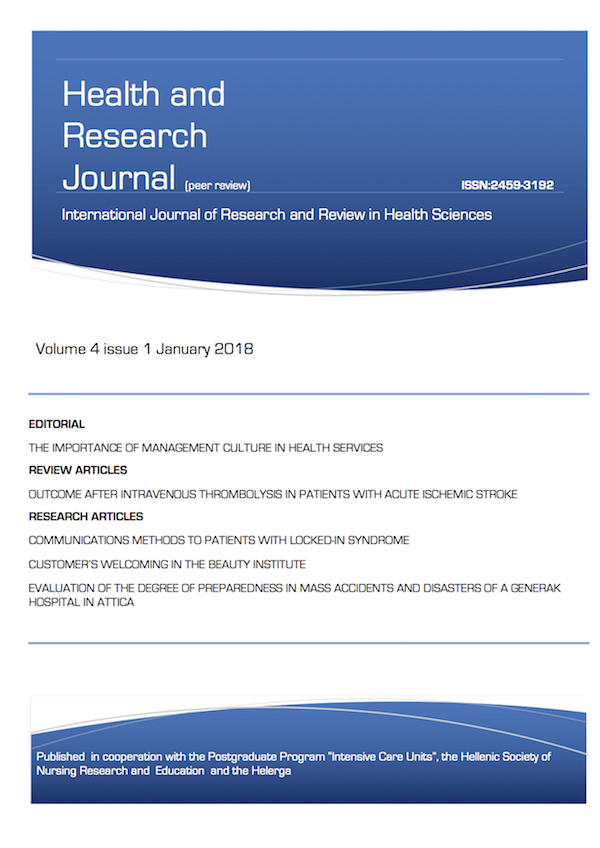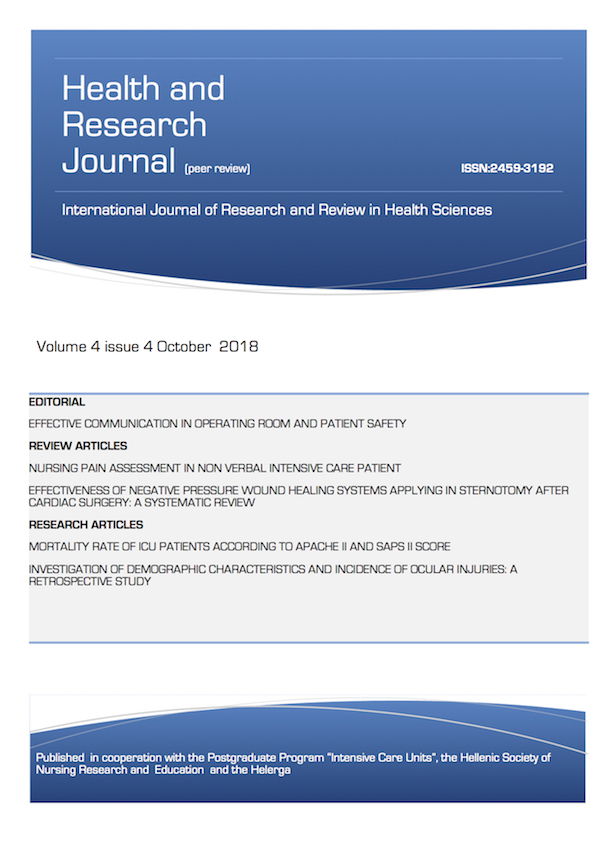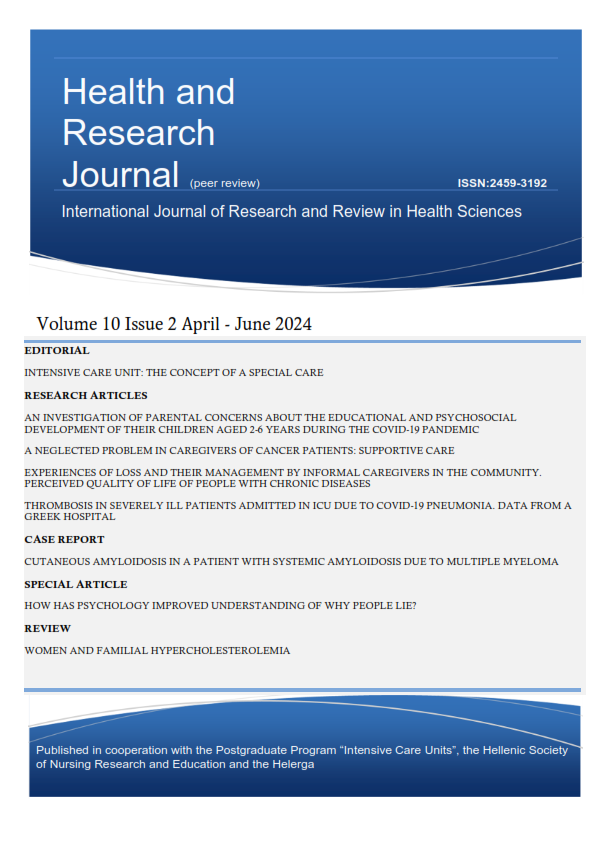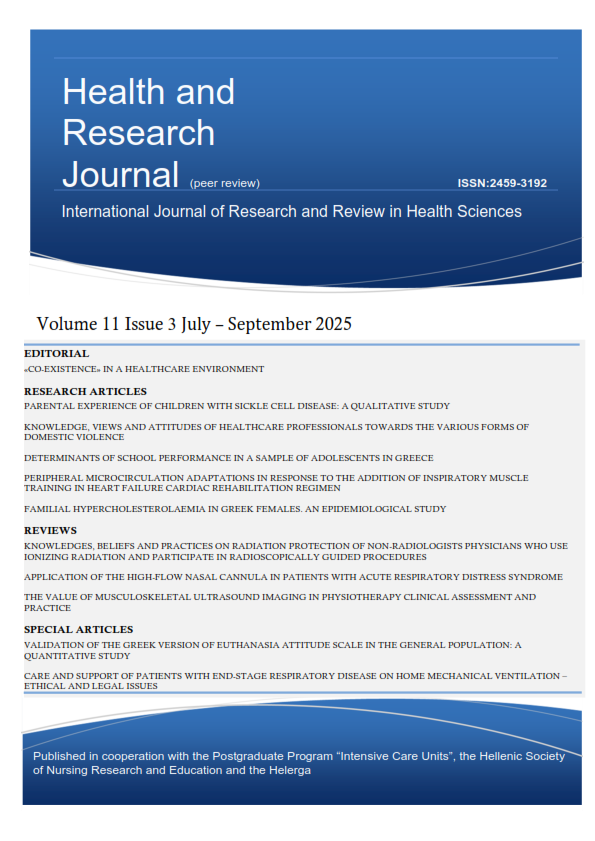Evaluation of the degree of preparedness in mass accidents and disasters of a general hospital in Attica

Abstract
ntroduction: Preparedness against mass and technological disasters is a fundamental obligation of contemporary hospitals.
Aim: The investigation and evaluation the degree of preparedness in mass accidents and disasters of a General Hospital in Attica.
Material and Methods: A cross-sectional study was conducted where the data collection was based on stratified sampling, with a self-completed questionnaire, and lasted from August to September
2015. The study sample consisted of 300 members of hospital staff. A structured questionnaire was used, where the higher the score the higher the hospital's degree of preparedness.
Results: Τhe majority (58.3%) declared that the hospital has experience in dealing with the consequences of a mass disaster. However, a small percentage (21.7%) was aware of the business plans. 42.7% has been trained in first-aid care, but only 7.7% has been involved in activity of major accident and disaster. Also, 50.6% believed that the staff’s responsiveness is good/very good, while 44.3% believed that it is moderate. Hospital preparedness was rated good/very good by 46% and moderate by 41%. However, the total preparedness of hospital was 11 (± 4.7), which means moderate and in particular 41.7% of the participants scored their preparedness from 6 to 10 degrees. Furthermore,theanalysishasshownthatthehospital’sdegreeof preparednessisinfluencedbyage, professional status, responsibility, and years of experience.
Conclusions: The preparedness of hospital was moderately assessed. It is therefore necessary to inform and train staff in managing major accidents and disasters.
Article Details
- How to Cite
-
Farmaki, D., & Kotanidou, A. (2019). Evaluation of the degree of preparedness in mass accidents and disasters of a general hospital in Attica. Health & Research Journal, 4(1), 41–59. https://doi.org/10.12681/healthresj.19638
- Section
- Original Articles
Copyright notice:
Authors retain copyright of their work and grant the Health and Research Journal the right of first publication.
License:
Articles are published under the Creative Commons Attribution 4.0 International License (CC BY 4.0). This license permits use, sharing, adaptation, distribution, and reproduction in any medium or format, including for commercial purposes, provided that appropriate credit is given to the author(s) and the original publication in this journal, a link to the license is provided, and any changes are indicated.
Attribution requirement:
Any reuse must include the article citation and DOI (where available), and indicate if changes were made.






